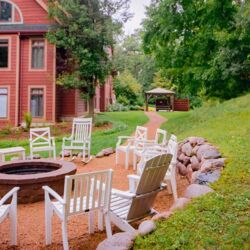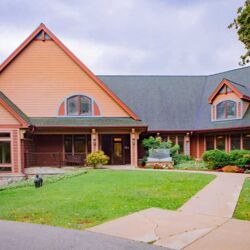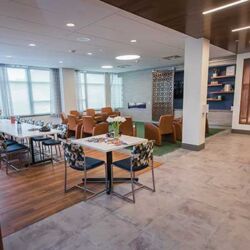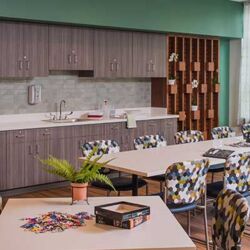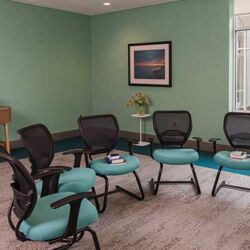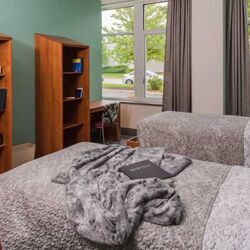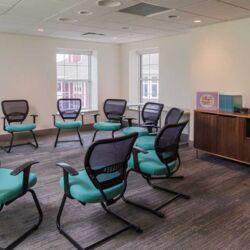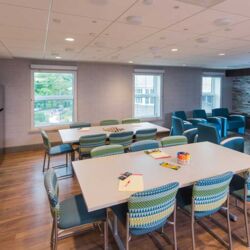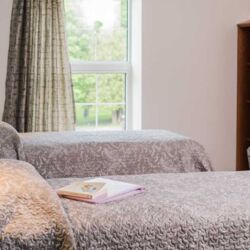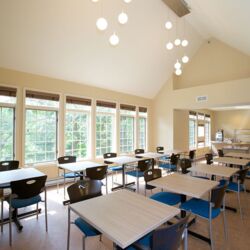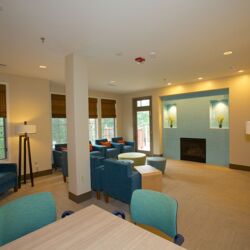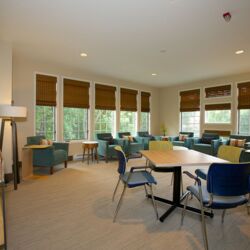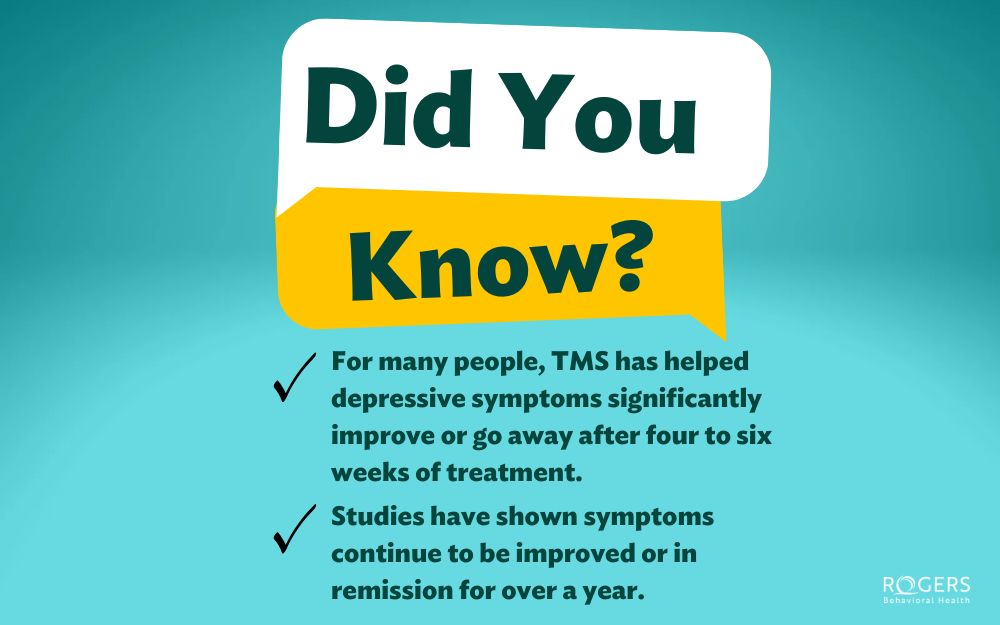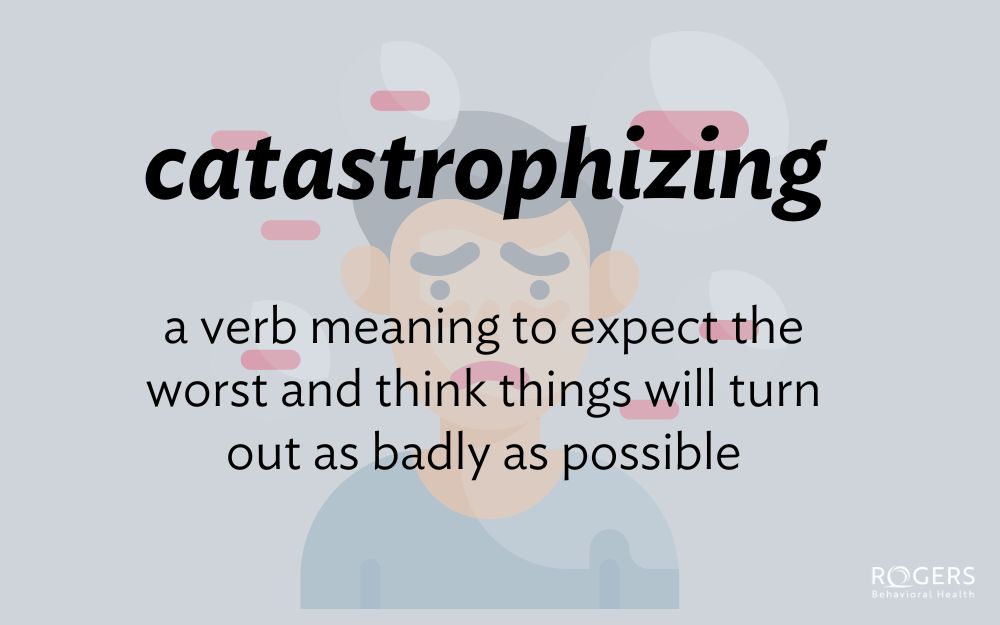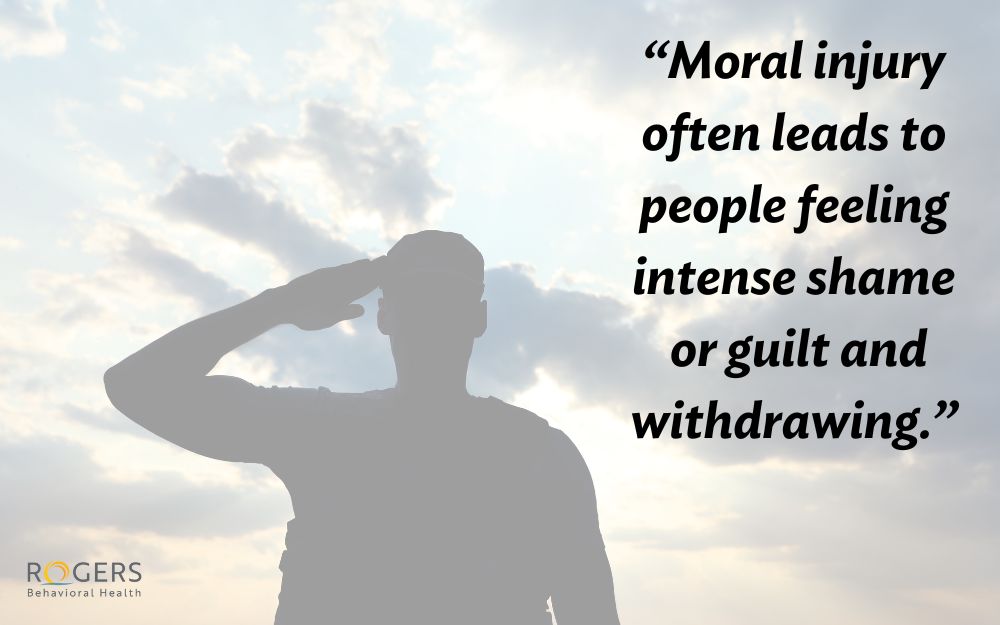
Focus Depression Recovery Adult Residential Care
Depression or other mood disorders can be extremely disruptive to work, school, or relationships and damage self-esteem. The fog of depression can make it tough to meet daily demands and embrace people and activities that used to be enjoyable.
Rogers is here to help. See the outcomes of our evidence-based care.
We know getting clarity in understanding just what you are dealing with and how we can help is a big first step. A board-certified psychiatrist leads a thorough assessment and evaluation to clarify the diagnosis and then prescribe the appropriate treatment.
In addition to intensive psychiatric and medication management, we provide a range of evidence-based individual and psychoeducation groups including three key approaches: cognitive behavioral therapy (CBT) to help patients better understand thoughts, behaviors and emotions; behavioral activation (BA) to increase engagement in activities in a manageable way; and dialectical behavior therapy (DBT; mindfulness, emotion regulation, interpersonal effectiveness, and distress tolerance).
Additional therapeutic support
Other components of therapy include:
- Cognitive restructuring
- Other dialectical-behavior therapy-informed skills
- Personal wellness education
Family involvement can help ease the transition to, from or back to school or to work, and that’s why the treatment plan includes family therapy sessions. This participation helps reinforce the skills learned during treatment and can ease the transition to lower levels of care or life outside Rogers.
It may be unsettling to move into an unfamiliar place for residential treatment, and it can help to know what to expect. Here is an example of what a typical treatment day may look like.
| Morning | Afternoon | Evening |
|---|---|---|
| Vitals, medications, breakfast | Lunch | Dinner |
| Mindfulness meditation | DBT-informed skills training | Daily living responsibilities or community integration activity |
| Experiential therapy | Activity groups | |
| Group therapy | Supervised assignment work |
A caring and dedicated team is here for everyone we treat. After a thorough assessment, the team creates an individualized plan addressing each unique mental health situation and lays the groundwork for successful treatment supporting long-term recovery.
Board-certified psychiatrists direct treatment with the support of a multidisciplinary team of professionals which includes:
- Licensed clinical psychologist
- Registered nurses
- Therapist
- Behavioral specialists
- Experiential therapists
- Certified substance use counselor
- Residential care specialists
- Care advocates
Residential care
Led by an expert board-certified psychiatrist, our team will work with you to develop ways to better navigate the difficulties that come with adulthood. We're experts in addressing:
- Depression
- Bipolar disorder
- Other mood disorder
- Co-occurring anxiety disorders
- Co-occurring personality and substance use disorders
During a stay averaging 45 to 60 days, you’ll live on our campus in Oconomowoc, Wisconsin, or West Allis, Wisconsin. Here you’ll receive treatment while living in a home-like setting with comfortable semi-private bedrooms and shared community space. Because adults face different challenges at various stages, our programs group people by age. Our goal is to work with those in our residential treatment to make positive and lasting changes.
Focus Depression Recovery Adult Residential Care setting and tour
Located on our Oconomowoc, Wisconsin, campus in the middle of Rogers’ 50-acre wooded setting nestled against the Upper and Lower Nashotah lakes, and our West Allis Wisconsin, campuses just outside of historic Milwaukee, these residential facilities provide a private and therapeutic environment.
Click on the images to view larger.
Wondering if you could benefit from residential care?
Contact us to request a free confidential screening and learn more.
Call 800-767-4411
Successful Clinical Outcomes
Data collected before and after treatment shows Rogers' treatment works. View more successful outcomes.
Quick Inventory of Depressive Symptomatology
Rising Above Anxiety and Depression | Steve's Story
After a medical crisis, Steve found himself struggling with anxiety and depression. A neighbor recognized Steve might have depression and recommended ... Read More
Next Steps
Inpatient care
We offer inpatient care to help you gain stability before safely entering lower levels of care.
Depression recovery residential care
Structured residential treatment for depression and other mood disorders.
Depression Recovery PHP/IOP care
Treatment during the day for your mood disorder help you improve symptoms and return to family.

